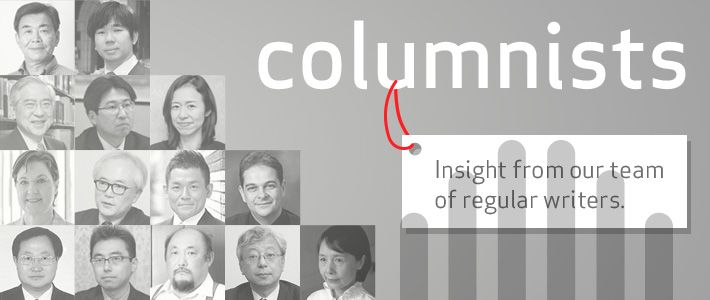
A Glimpse Behind the Curtain: A US-Based Political Scientist Considers the Kim Jong-un Regime
Politics- English
- 日本語
- 简体字
- 繁體字
- Français
- Español
- العربية
- Русский
Professor Han S. Park of the University of Georgia in the United States, who helped arrange former US President Jimmy Carter’s visit to North Korea, appeared in Tokyo on August 8 to give a lecture about the situation on the Korean Peninsula, at the invitation of an organization that supports North Korea.
The North Korean Deng Xiaoping
Park graduated from Seoul National University in 1963 and later earned a master’s degree and doctorate in the United States. A scholar of political science residing in the United States, he has served as a diplomatic adviser to the US State Department. He has visited North Korea more than 50 times. In 1994 Professor Park helped arrange a visit to North Korea and a meeting with Kim Jong-il for former US President Jimmy Carter. His lecture revealed a degree of bias, since he is sympathetic to North Korea, but he did express his own distress concerning the present-day Kim Jong-un regime.
In his remarks Park offered the following analysis.
- Under the leadership of Kim Jong-un, First Secretary of the Workers’ Party of Korea, North Korea is pursuing three objectives, just as any other country would, in the following order: (1) security; (2) legitimacy as a nation, a national identity, and national independence; and (3) economic prosperity. Without these, a nation cannot exist.
- The nation’s founding father, Kim Il-sung, repeatedly emphasized the need to ensure the nation’s security, and this continues to be necessary. At the same time North Korea has sought to establish a national identity by pursuing the philosophy of juche, or self-reliance.
- It is apparent that Kim Jong-un, having assumed the reins of power, is determined to achieve economic prosperity. He intends to be the Deng Xiaoping of North Korea.
Park predicted that, just as Deng brought about economic prosperity in China, the North Korean leader will pursue political advances in his own era in order to bring about economic reforms. Park envisions Kim Jong-un as the North Korean Deng Xiaoping.
The Party as the Decider
Another key name is that of Kim Il-sung, the revered founding father of North Korea. Park argues that the Kim Jong-un regime is strong simply because, in essence, this regime is none other than the Kim Il-sung regime. Why? Because it was Kim Il-sung who created the country. Although he is no longer alive, says Park, a country does not die merely because its creator has died.
Park’s analysis of the Kim Jong-un regime invoked the names of Kim Il-sung and Deng Xiaoping. His lecture had the strong flavor of a propaganda effort intended to convey the impression of a smooth transition to a new regime, but in response to a question he offered an unexpected reply. Under the new regime, Park said, important decisions are made not by Kim Jong-un but by the party. Kim Jong-un himself does not personally make the decisions, nor does he desire to do so. He heeds the views of people with more experience, and although pronouncements are issued under his name for symbolic reasons, the decisions themselves are reached via a collective political system.
Park’s comments suggest that Kim Jong-un is running the country while relying on the foundation laid by his grandfather, the nation’s patriarch. This will give rise to rhetoric equating the Kim Jong-un regime with the Kim Il-sung regime. Since the death of his father, Kim Jong-il, in late 2011, an effort has been made to present Kim Jong-un, the successor—with his round face, high-sided haircut, and characteristic attire—in a manner that evokes the memory of his grandfather. This reflects a determination to exploit the prestige of the nation’s founder to the maximum possible extent as well as an intention to achieve an orderly change of regime within the Kim dynasty by veering away from Kim Jong-il’s “military first” path and shifting course toward economic reform.
Sudden Shakeup Indicates a New Direction
The first major move by the new regime was the sudden dismissal of Ri Yong-ho, chief of general staff of the Korean People's Army, which was orchestrated by Jang Song-taek, chief of the central administrative department of the Workers’ Party of Korea and the husband of Kim Jong-il’s sister Kim Kyong-hui. Jang is connected to the dynastic bloodline through his wife, and it is he who actually wields the power, having anointed Kim Jong-un as the new ruler, cloaked in a mantle of prestige inherited from his grandfather. Kim Jong-il maintained a very delicate balance with the military. This situation suggests the possibility not only of an internal power struggle within their ranks, but of a fierce battle between the regime and the military as well.
Speaking about the transfer of power within the Kim dynasty, an information official from Japan’s Ministry of Foreign Affairs recently said that, while the transition is progressing smoothly right now, there is uncertainty about the longer term.
(Originally written in Japanese on August 16, 2012.)Deng Xiaoping North Korea Kim Jong-un Korean Peninsula Kim Il-sung Jimmy Carter